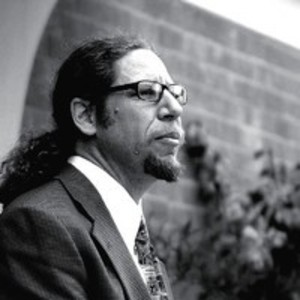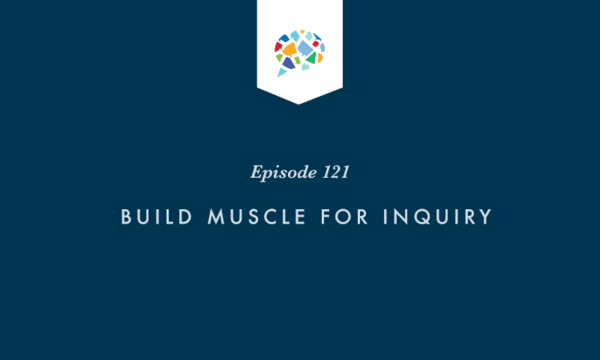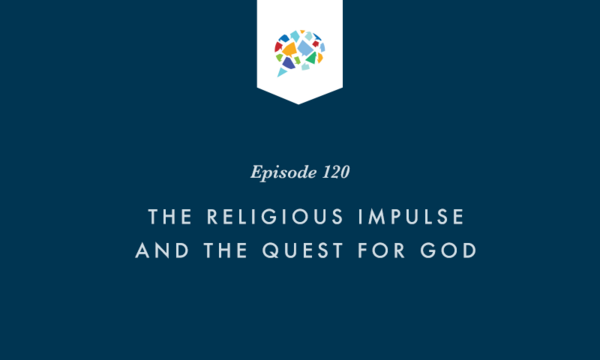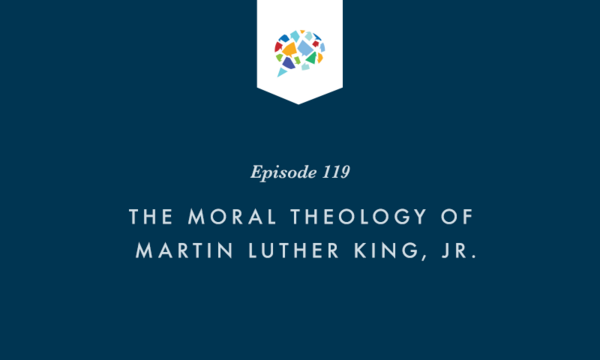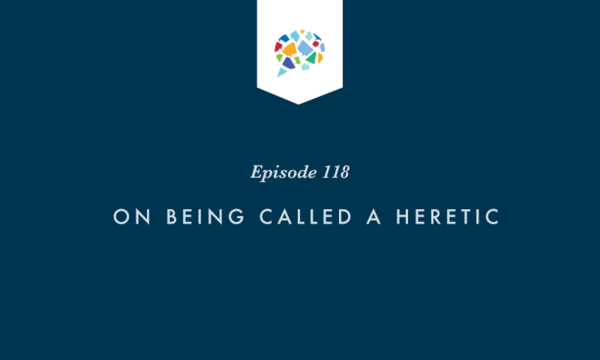Gregg Ten Elshof: If your ideal of the good person is somebody who just doesn't care, how they're perceived in communities of other people, then you'll have no place for shame and honor in your way of thinking about the good life. But on the other hand, to say that we don't traffic in shame and honor anymore, I think gets it all wrong. I think we're we're trafficking in shame perhaps more so now than ever before.
Tim Muehlhoff: Welcome to the Winsome Conviction Podcast. My name is Tim Muehlhoff. I'm a Professor of Communication here at Biola University in La Mirada, California, and the Co-Director of the Winsome Conviction Project.
Rick Langer: My name's Rick Langer and I'm the Co-Director with Tim, and I'm also a Professor of the Biblical Studies and Theology Department and the Director of the Office of Faith and Learning, and we have been having a great time talking with people about talking with people. One of the folks that Tim and I both know as friend and colleague here at Biola is a guy named Gregg Ten Elshof and I'm holding here, his new book entitled For Shame: Discovering the Virtues of a Maligned Emotion and it's a really interesting book about the idea of shame.
We were looking at this, we'd heard Greg had written it and thought, man, we should bring Greg in to talk about this because it's actually a rather interesting topic in our cultural moment about what happens when we communicate with one another. And we talk about shame, we talk a lot about these things. Though, I have to admit Gregg, when I saw the title, I thought, "How do you get interested in writing a book about the topic of shame?" I'm picturing myself waking up on a nice Friday morning, the sun's shining, the birds are chirping and "I think I'll write a book on shame."
Gregg Ten Elshof: Defending shame.
Rick Langer: Defending shame.
Gregg Ten Elshof: Defending shame.
Rick Langer: Give us a little account of what got you thinking down these lines and motivated to actually dive in at the deep level that you have.
Gregg Ten Elshof: Yeah. Well, let me say thank you first for bringing me on your show. It's a privilege to be here.
Tim Muehlhoff: This is the pinnacle of your career right here, Gregg.
Gregg Ten Elshof: I feel it.
Tim Muehlhoff: Is going to be all downhill.
Gregg Ten Elshof: It's all downhill from here. Yeah. After this.
Let's see, so, for a number of years, I had been thinking and writing about Confucianism and classical Chinese philosophy in general. If you know anything about Chinese philosophy, you know that shame and honor loom large in Chinese wisdom and that shame and honor have important work to do in those traditions, in the formation of healthy communities and healthy persons. And so I was steeped in that literature and fascinated by it and thinking about how we can port wisdom from the Confucian tradition into the way of Jesus following, and I started to be aware of this growing body of literature that was staunchly anti-shame. A kind of anti-shame literature that was Christian literature, secular literature.
There was this growing chorus of voices suggesting that while guilt had important work to do in the formation of healthy communities, shame was somehow intrinsically toxic. That it was a bad business altogether, and that we should do our best to eradicate shame from the range of felt human emotions. And steeped in the Confucian literature as I was, this came to me as initially absurd. Certainly it would seem absurd to a Confucian perspective. So I started to... I got curious and I wondered why is it that shame is under such attack? And that brought me into the attempt to defend it.
Tim Muehlhoff: And by the way, that resulted in a phenomenal book, called Confucius for Christians, that you've also written. It's just a great example of how we can learn from other faith traditions. I honestly just quoted it in a new book that I have coming out as an example of what a great job you do modeling of what it can look like to learn from God's general revelation. So, seriously, Confucius for Christians is an awesome book and kudos for writing that as well.
Gregg Ten Elshof: Thank you, Tim.
Rick Langer: One of the things... So Greg and I both share a philosophy background and I wanted to give you a little moment of celebration and good on you sort of thing, about one of the things I think philosophers tend to do well or can do well is to define things carefully. And the danger of that sometimes you sound like you're nitpicking or just talking about nuanced semantic issues. I was chatting with Tim beforehand and I said, one of the things I thought you did really masterfully was the definition task, but you avoided the thing of just making these definitional distinctions just be the thin edge of the wedge and then you go on and do something else. You dove in and said, "Well, wait a minute. These are distinct notions. Now let's see where this leads us." And I think you laid that open well. But we're thinking it might be good for us to begin by letting you unpack a little bit of the definitional question, because that, at least to me, seemed to be enormously important.
Gregg Ten Elshof: Yeah. I think it's the right place to start. So, the word shame, like the words that we use for so many emotional states, names both an objective condition and a subjective or emotional affective state. So, to understand shame, you have to think along both of these tracks. On the objective side, to fall into shame is to be socially discredited. It's to become a person of lesser consequence or lesser significance in a community of other people. We have metaphors like losing face or losing social credit or something like that. And that's an objective condition. It can happen whether or not you feel anything, whether or not you even know it's happening. It can happen while you're asleep on Twitter. You can be socially discredited. So, it's just an objective condition to fall into shame.
On the subjective side, the affective or emotional side, to feel shame is to feel the pain associated with that condition. So, if you lose standing, if you become a person of lesser consequence in a community of people that matters to you, that'll hurt. That'll sting. And that particular kind of hurt or sting is felt shame.
And it's sometimes instructive just to have the opposite concept in front of you. So, honor is the opposite of shame. On the objective side, to be honored is to become a person of greater consequence. To acquire social standing or social credit. And again, that can happen whether you're aware of it or not. It can happen while you're asleep on Twitter, whatever. And to feel honored is the opposite of to feel shame. To feel honored is to feel that pleasant emotion that a company's increased standing in communities that you care about. That's how I think shame and honor have been classically understood.
Rick Langer: And I assume, well, perhaps I actually know, that part of why you were making those distinctions that there's other death definitions of shame that are floating around right now that are perhaps... Perhaps some of the distance between what you're advocating for and what others have advocated for actually go back to the fact that we're operating with two different definitions of shame. Is that the case? And if so, unpack the other definition and point out where you're at odds.
Gregg Ten Elshof: Yeah. If they were just different, the problem wouldn't be so deep. I mean, we could just say, "Here are two different definitions. We're speaking different languages. So be it." But they're different, but overlapping in important ways and because the definitions are different but overlapping, there's the occasion for a lot of miscommunication and confusion. So, if you've been taught that shame, the subjective feeling of shame is somehow toxic or unhealthy or destructive intrinsically, it's probably because you've been taught to confuse shame with other self-directed emotions and attitudes like low self-esteem, or self-loathing, or failures of self-respect. And if you've been taught to define shame as a failure of self-respect, as a negative self-esteem well then, of course, shame will be toxic because low self-esteem is toxic and self-loathing is toxic, and a failure to respect yourself is toxic. But I've suggested... One way to see that's, a confused way to think about shame, is just to think about the opposite. The opposite of shame has always been, and is supposed to be honor, not healthy self respect or a healthy self image.
One more thing about that. So, the over the reason there's overlap is because it's become a trope in the literature to point out that guilt as an emotion, takes aim at a behavior and shame as an emotion, takes aim at the self. And that's true. To feel shame is to feel something not about what you've done, but to feel something about yourself. To feel yourself as a person of lesser significance in a community of other people. To feel guilt is to feel a negative emotion about something you've done. So, there is that important overlap between the classical definition and what I think is a confused definition in much of the literature.
Tim Muehlhoff: So, can I bring up... Have you react to a quote? I'm sure this has never been brought up, but we do our homework here at the Winsome Conviction Podcast. You probably have never heard of Kurt Thompson. His book called The Solo Shame. And here's a quote he has... And just, and again, we're not here to attack people, but he has written a pretty popular book and this is what he says, "Guilt is something I feel because I have done something bad. Shame is something I feel because I am bad." So, what do you like about that? What would you take issue with that?
Gregg Ten Elshof: So, what's right about that, is it's calling attention to this difference I was just describing. That guilt takes aim at a behavior and shame takes aim at the self. What I don't like about it, is that it confuses shame with self-loathing. To feel that you are bad is to be caught up in a self-loathing or a failure of self respect. Here's a subtly different thing. I am per perceived as bad in a community that matters to me. Right? That's shame. Right? I am being looked at as... I've been diminished in the eyes of the people that care about me. And of course, it's a if you think that you're being thought of as a bad person, it's famously difficult not to think of yourself as a bad person because we're so deeply affected by the way we're perceived by other people. So shame... One of the reasons that shame can be so destructive is because it leads so easily to failures of self respect, low self-esteem, self-loathing and all of the rest. But the fact that shame often leads to those things isn't a reason for conflating the two.
Rick Langer: In a similar context, Brene Brown offers this definition of shame, an intensely painful feeling or experience of believing we are flawed and therefore unworthy of acceptance and belonging. Now, when I read that definition, to me, it feels as if it's almost written to assure that it is by definition, bad and toxic. But I'm puzzled why that would automatically be the meaning of shame. Or why would we even inclined to agree with it. And I'm suspicious, back to your observation earlier about Confucianism, that some of this is just an artifact of a Western culture that really doesn't have a lot of imagination for things like honor. We are unconcerned with pleasing the crowd. We make an identity thing to be individualistic. And so the whole honors shame discourse is lost on us, or we see it from afar and we're really susceptible to false presentations of it, because we don't naturally traffic in it. Is that accurate or...
Gregg Ten Elshof: Yeah, I think it's a complicated question. Certainly the post enlightenment West caught up as it is, in individualism. And in the American context, especially where rugged individualism is part of the ideal, it's very difficult to make imaginative space for shame and honor. I mean, you'll only care about shame and honor, if you care about how you're thought of in other...
Rick Langer: Right. It doesn't work [crosstalk] without that concern.
Gregg Ten Elshof: That's right. So, you have to have of that concern for the perception of other people. And if your ideal of the good person is somebody who just doesn't care how they're perceived in communities of other people, then you'll have no place for shame and honor in your way of thinking about the good life. But, on the other hand, to say that we don't traffic in shame and honor anymore, I think gets it all wrong. I think we're we're trafficking in shame perhaps more so now than ever before.
Rick Langer: Talk to us a little bit more about that. How do you see that playing out in our contemporary moment here?
Gregg Ten Elshof: Yeah. My own view is that in our contemporary moment, and here I'm thinking of the contemporary Anglo West, we've gotten things exactly backwards. We're extremely suspicious of shame as an emotion. Thinking that it's toxic and we do well to eradicate it from the range of human experience. And we're accepting of, sometimes embracing of, shaming as an activity. And I think that's exactly backwards. I think we should be extremely suspicious of shaming as an activity and less suspicious than we are of shame.
Tim Muehlhoff: Yeah. Can you define shaming real quick? The distinction between shame and shaming?
Gregg Ten Elshof: Yeah. So, shame again is either this objective condition of being socially discredited or the painful feeling that accompanies that. To shame someone, the shaming as an activity, is trying to bring those conditions on another person. Right? So, if I shame you, Tim, what I'm trying to do, is I'm trying to bring it about that you're a person of lesser consequence in a community of other people, or I'm trying to bring it about that you feel like a person of lesser consequence in a community of other people. And I think that's a very difficult thing to do in the service of love. It's very difficult to try to make someone a person of lesser consequence in communities that matter as an act of love to that person. And that's why we should be so suspicious of shaming as an activity.
Rick Langer: And so when you think about this in our contemporary world, I'll just say, what pops into my mind as I hear you talking, is... So, we sometimes call it the cancel culture and people debate about whether that's a good phrase or not, but the concept of what goes on in social spaces like Facebook or Twitter or things like that, seems to me to be a quintessential example of shaming and with an very unclear relationship to shame, I guess. And maybe you could help me on... Perhaps I'm thinking of a wrong analogy there, but that's what comes to my mind. Is that how it's being manifested? Is social media one of these big contexts where we're doing that?
Gregg Ten Elshof: Yeah, I think it is. It is just shaming plain and simple what's happening.
Rick Langer: Okay. Let's not make it complicated
Gregg Ten Elshof: In that culture, whatever you call it. It's the attempt in the service of a cause or a social program or whatever, it's the attempt to make a particular person or agency or institution or whatever, a person of lesser consequence. And what's happened in social media... In the good old days, when you just had to do this with communication with the people around you, when you shamed somebody, it was in a controlled environment. You could cause them to be a person of lesser consequence, but only in a narrowly defined community of people. The people that could hear you as it were. Right? With social media, the power to shame has been boosted. Right? So this thing that was already a pretty powerful instrument in human interactions has become an immensely more powerful instrument in human interaction because the audience is unlimited. Now with a few characters I can... If I have the right kind of voice, I can make you a monster in the eyes of all respectable human company. And that's a power that shame has never had in the history of the human race.
Tim Muehlhoff: Think about Proverbs. Life and death in the power of the tongue. Greg, I wonder if I could throw out a test case to you to see... Put these definitions to a test. A verdict just came out in which Jussie Smollett was convicted on four counts of hate crime. He staged a hate crime. He faked it, for whatever reason, who knows. But he staged it, police were investigating it using a lot of time, resources, energy, money. And then it came out that the two people who he incorporated, later came out and said, "We were paid to do it." So now, the police are coming in and saying, "Well, we're going to take you to court because you should have to at least pay for all the money, time and resources we spent. But then also it's against the law to do this. To lie about this and stage it." So now, he's been found guilty and is obviously being demonized. How do we relate to that? Should he be shamed for what he did? And is that shaming if I do that? What would be the appropriate critique of him without bleeding into shaming?
Gregg Ten Elshof: If I understand the case, right? It sounds to me like he should be brought to justice.
Tim Muehlhoff: He did. And he was convicted.
Gregg Ten Elshof: Yeah. In so far as he's done something wrong. And that that, all by itself, will affect his shame. If you're convicted of a felony, you will, as a matter of fact, in respectable company, for better or worse, be a person of lesser consequence.
Tim Muehlhoff: He's an actor. And do that has been...
Gregg Ten Elshof: That's right.
Tim Muehlhoff: From the series Empire.
Gregg Ten Elshof: My guess is, the person you're describing doesn't need anybody to shame him. He will, as a matter of fact, because he's been convicted of a felony... If you're convicted of a felony and you're innocent, you'll experience shame. You'll be a person of lesser consequence for having a felony on your record and that'll hurt. So, as I think of it, he is in fact, undergoing shame as a consequence of this verdict, and if his emotions are tracking reality, he probably is feeling shame. He's probably feeling the pain of that.
Rick Langer: Let run with this a little bit. I think I'd like to talk about some of these issues in a little more depth because I think they're super relevant to the things that we talk about a lot here. About how we communicate in our contemporary communication climate and our communication context, where social media is so prominent. Let me pick up the idea of the #MeToo movement, which in many ways I thought was a good thing. You see these things coming about Harvey Weinstein and various other people, and suddenly realize this just seemed to be endemic.
But then, I pick up some of these things of people, let me put it this way, who weren't convicted of a felony and therefore ashamed, but simply accused of a felony, so to speak, or a violation of the #MeToo movement, and they were tried, condemned and sentenced and there was no evidence or any, so to speak, due process. I was actually sensitized to this by a female faculty member I was chatting with who was pointing this out about anxiety, about where some of these things are going.
So, it seems to me like there's a danger when... You talked about the objective part of shame, when you do something that's actually wrong relative to the community. One of things that seems like it's particularly prone to happen on the internet is that we are losing any attachment to the objective part and shaming just gets a life of its own. And then even to push back on it makes you another object of shame because, "Oh, you don't believe in the #MeToo problems." So, at some point I'm like, "How do we even have a conversation about this in that environment?" So, Obi Wan, you're my only hope. How do I solve this problem?
Gregg Ten Elshof: Yeah. I don't know how to solve the problem, but this much seems right, that if you're thinking about the shame and honor dynamic, one of the things, it seems to me, that got discovered pretty early on in the Me Too Movement, is that you don't have to be convicted of harassment or sexual misconduct in order to be an object of shame in contemporary Western culture. You need only to be accused. And if you're accused, for better or worse, if you're accused you will lose credit. You'll be socially discredited in communities that matter to you. I think that was discovered and then it was deployed as an instrument to fuel a social movement. I think those are just the facts on the ground. It's an interesting moral question, whether that was a good idea, a bad idea, legitimate, illegitimate. What seems unquestionable is that it was discovered and it was deployed.
Tim Muehlhoff: Well, listen, this has been a fascinating conversation. What I love about the book is that you apply it to some interesting ways. One, you're reading of the Prodigal Son, is just, was really interesting. And then you actually bring up the topic of white shame, which we thought we would want to jump in on because it was a really interesting take on it that we thought we'd like to explore more.
Rick Langer: So, we'll pick that up on the second part of this podcast with Gregg Ten Elshof, one of our colleagues here at Biola University. And we'd like to thank you for joining us here on the Winsome Conviction Podcast. If you'd like to hear more, we'd encourage you to subscribe on Apple Podcast or Spotify or wherever you get your podcasts, or check us out the winsomeconviction.com website. And we're grateful for your partnership with us and joining in with us in this ongoing conversation about how we can form and communicate winsome convictions.
Tim Muehlhoff: So join us for round two with Dr. Gregg Ten Elshof.

 Biola University
Biola University